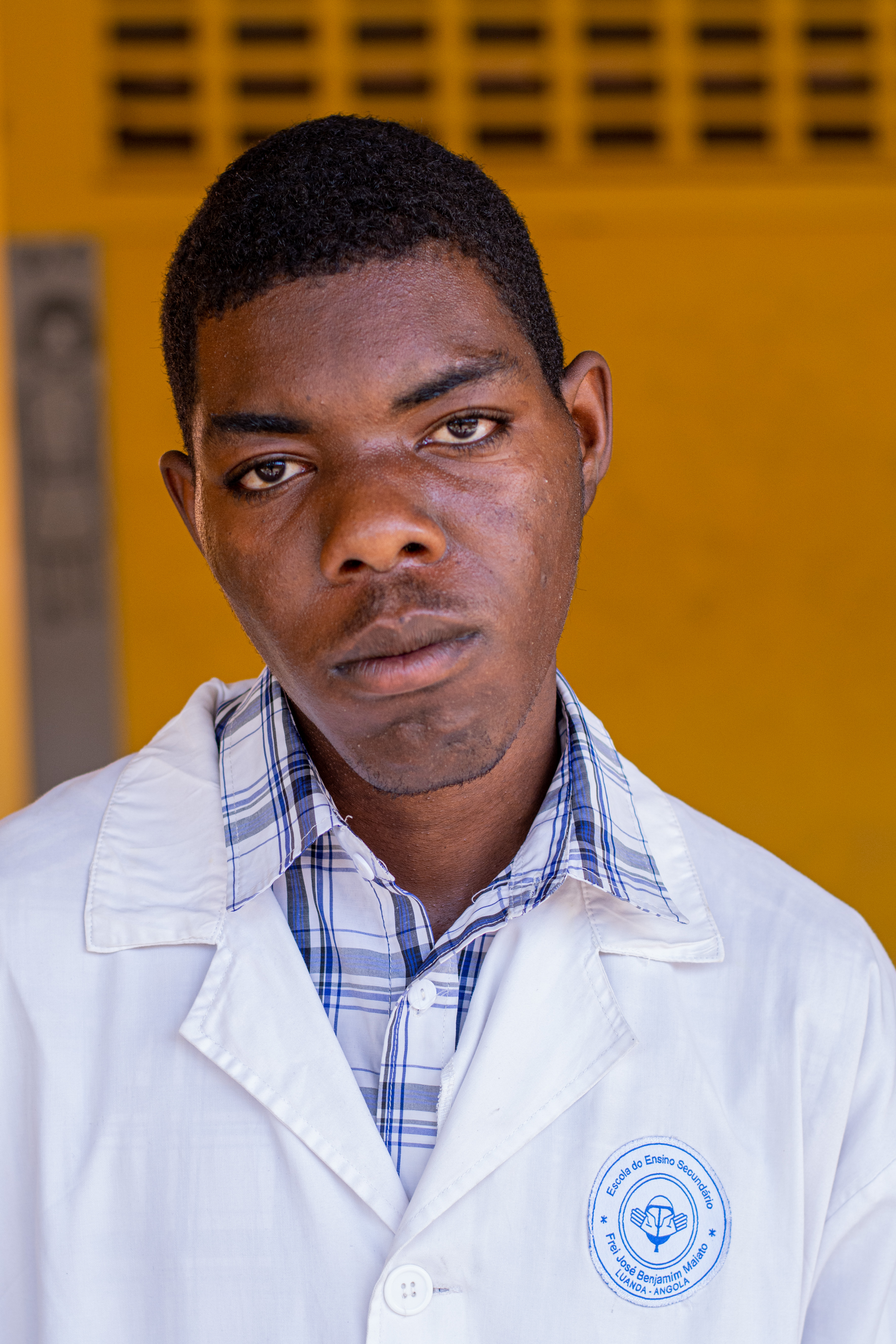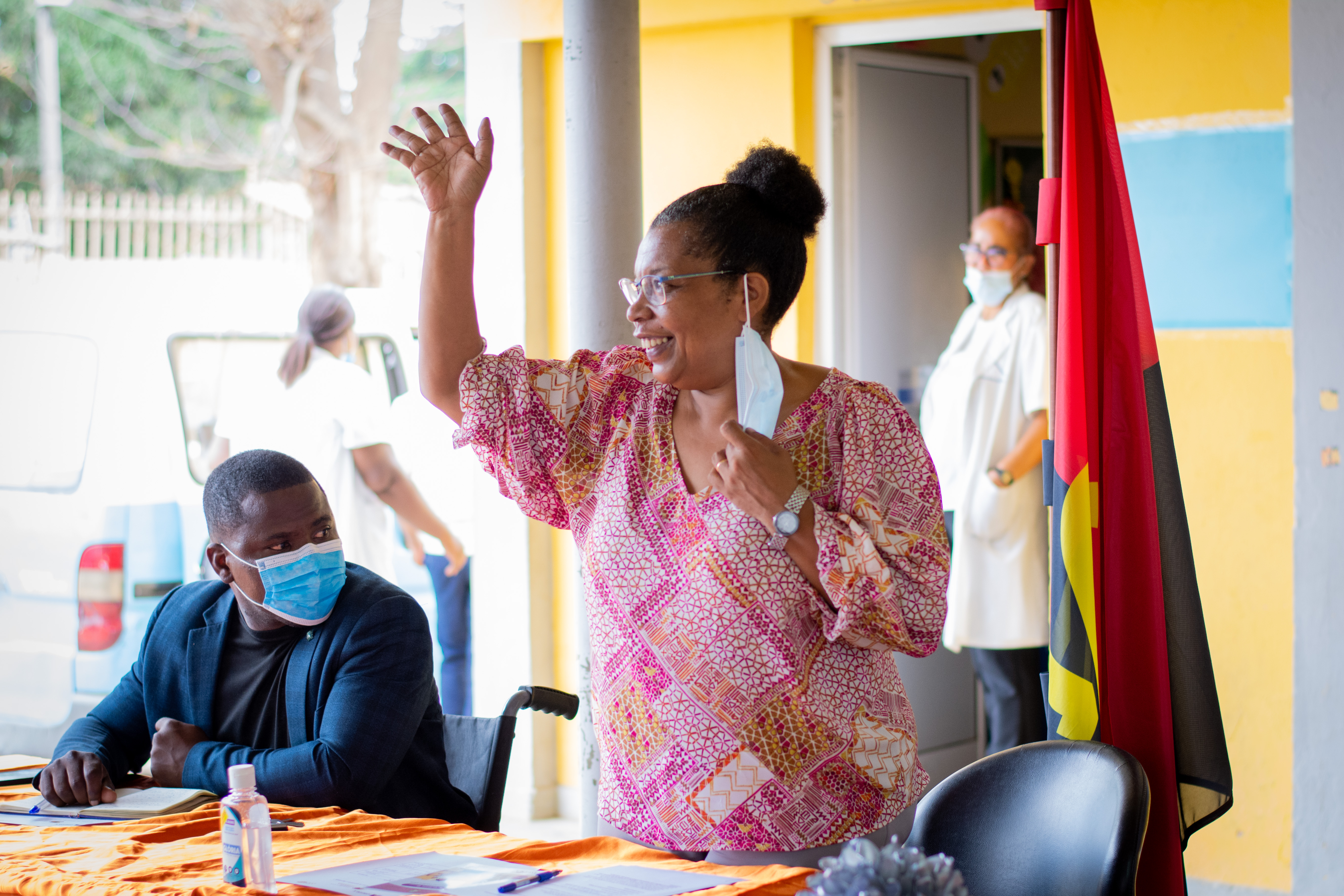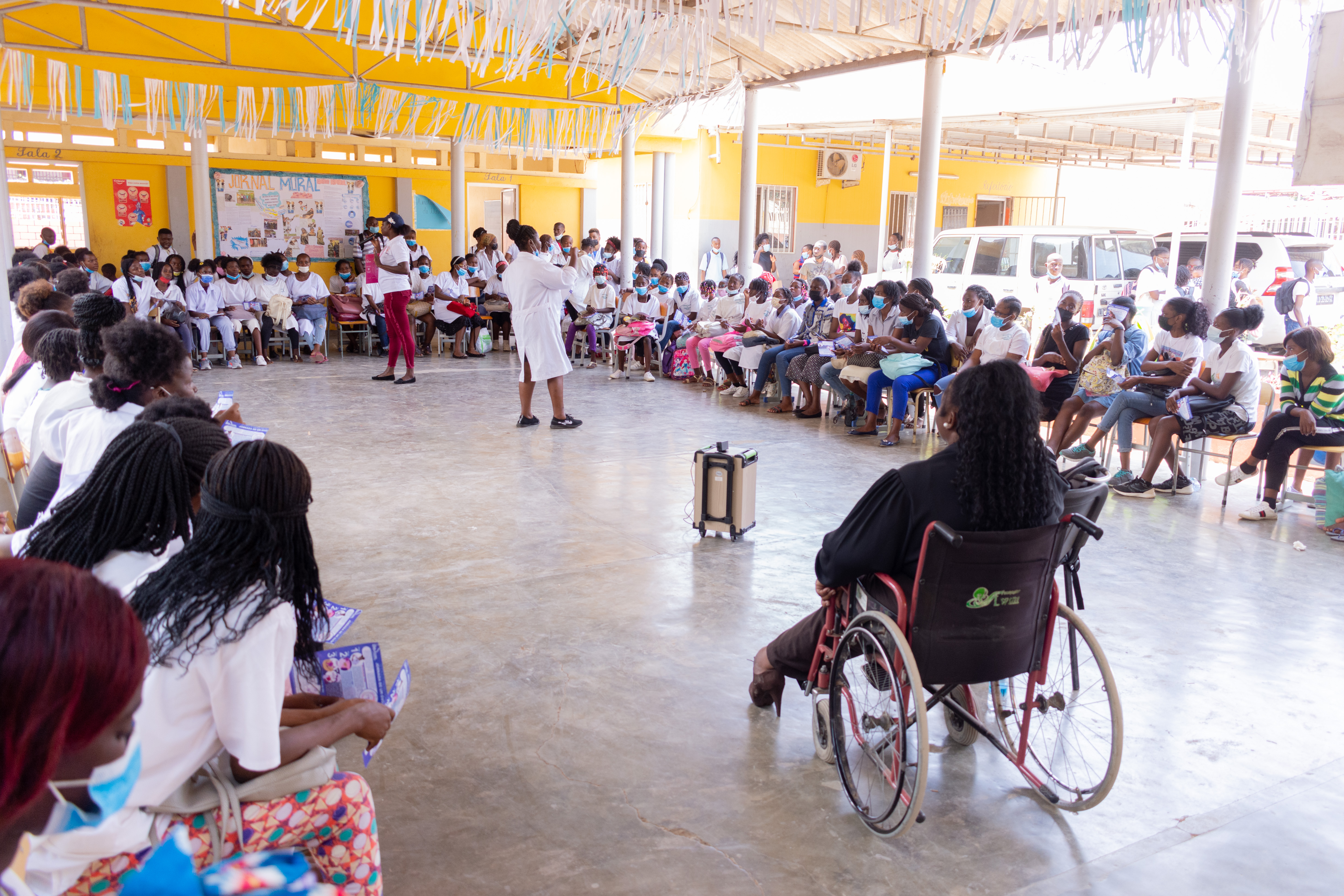Equality and Dignity Workshop Angola 2021
“I consider myself a normal person, I am quite capable of the things I do and of my actions... I would like to be able to show the world what I know how to do, practice my dream profession building furniture” – Edvanio Jorge, 19, Student from Rangel's Special Education School
At 19 Edvanio Jorge, a student from Rangel's Special Education School in Angola, is aware of what some poeple in the world may think when they see him. But Edvanio is a shining example of strength and resilience, and he does not let other people's misinformation on living with disability disencourage him from his life's goals. Edvanio dreams of continuing his talent and training building furniture, and believes that it is important to eliminate myths and taboos about specially abled people so that they too can contribute to a better world.

Education is an important ally to raise awareness, to dispel the myths of menstruation and disability, for example the common presumption in Angola that girls with disabilities do not menstruate. In the world, almost 1/5 of the female population are women with disabilities (UNFPA/WEI2020). According to data from the Population and Housing Census carried out in May 2014, in Angola, the prevalence of people with disabilities until this reference period was 2.5%, which was equivalent to 656,258 inhabitants. Ensuring that more girls and young people have access to the right information about SRH, especially on menstrual health, is critical to advancing the rights of the most vulnerable in the country. Moreover, the systems of social protection from exploitation and vulnerability become more effective, especially to prevent the risk of unwanted adolescent pregnancy and school drop out rates which are extremely high in the country. In Angola 37% of adolescent girls have already had their first pregnancy, making this one of the highest natinal rates in the world. To achieve this goal, and to help young people, especially the most vulnerable girls with disabilities, have the tools and autonomy necessary for greater inclusion in society and exercise the right to participatory leadership towards an inclusive post-COVID-19 world, UNFPA partnered with the Angolan government to hold a Workshop on Menstrual Health and Hygiene at the Rangel school, which is dedicated to young people and adolescents with disabilities and hearing impairment.


Youth engagement creates conditions for the empowerment and realization of everyone's potential
“When I was younger I was sad because I couldn't make friends because of my condition,” says Valdemara Ferreira Pinto, a 14-year-old girl with special needs who attends the same school highlights how important and empowering engaging with peers can be. Valdemara, who was born and raised in Luanda, dreams of traveling to Portugal to visit her family. Valdemara attends the Special education at Rangel Special Teaching School in Luanda Angola . When she was younger, Valdemara suffered from the symptoms of social exclusion, which include depression at a young age. Today, Valdemara has an active group of friends and classmates, and presents herself as a very communicative, happy girl, full of dreams for the future.She has always liked banks and dreams of being able to work in the banking sector. Thanks to the investments being made in her education, Valdemara’s dreams can come true, and she too can make an important contribution to the development of her country. Society needs the talents of specially abled people, in the same way that specially abled people need a kind society.
UNFPA's work with Government of Angola Ministry partners demonstrates that investments made in young people create the conditions for protection and empowerment in the advance of sexual and reproductive health rights, especially for the most vulnerable.
Workshop on Menstrual Health and Hygiene for Young People with Disabilities


